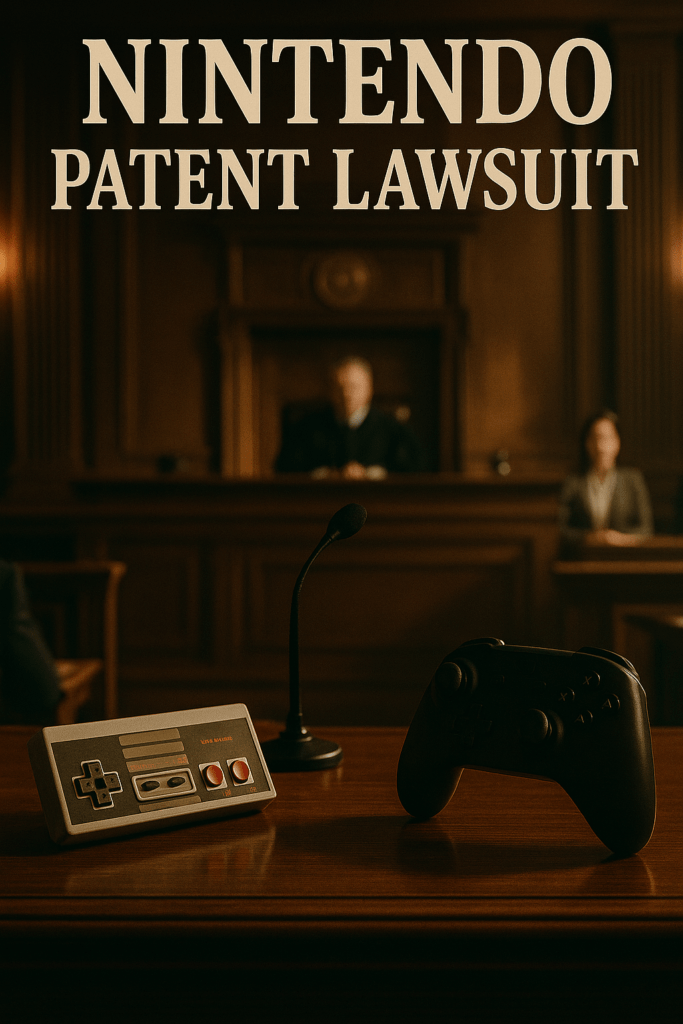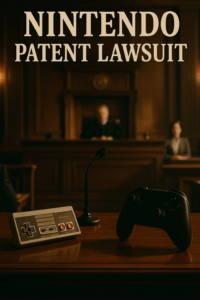Nintendo is once again making headlines, not for a new game launch, but for aggressively enforcing its intellectual property. The latest target: Palworld, a wildly popular creature-battling game that bears visual and mechanical similarities to the Pokémon franchise. At the center of the controversy is a Japanese lawsuit alleging infringement on patents, copyrights, and trade dress. While the case hasn’t (yet) surfaced in U.S. federal courts, its ripple effects are already being felt by the broader game development community.
At issue is a patent that claims a method of “summoning” creatures through a throwing motion — a mechanic central to both Pokémon and Palworld. What makes this case remarkable isn’t just the legal maneuvering, but the broader implications for startups and indie developers building in the gaming space.
The Patent at the Heart of the Dispute
The core patent claim involves throwing an object (e.g., a “Pal Sphere”) to summon a battle-ready creature. On its face, the idea doesn’t sound particularly novel — summoning mechanics have existed for decades in Final Fantasy, Shin Megami Tensei, Yu-Gi-Oh, and countless other titles.
What makes Nintendo’s patent controversial is that it appears to cover a broad gameplay loop, not a technical invention. Unlike typical game patents that focus on novel controller inputs, network synchronization, or graphics pipelines, this patent goes straight to the heart of a genre-defining interaction.
A Shift in USPTO Patent Issuance Trends
This case also reflects a broader shift in how the U.S. Patent and Trademark Office (USPTO) is handling applications. There’s growing evidence that the USPTO is issuing patents more permissively, with the expectation that courts or settlements will ultimately define enforceability.
Under this more hands-off approach, patent validity becomes a question for litigation, not examination. This trend is especially advantageous to large players like Nintendo, who have the resources to build and enforce large patent portfolios. But it also presents a mixed opportunity for startups:
- On one hand, startups face higher legal risk and uncertainty.
- On the other, they can adopt the same strategy: securing broad patents early and using them as both an offensive and defensive moat.
 Are Gameplay Patents Too Broad?
Are Gameplay Patents Too Broad?
Critics argue that Nintendo’s summoning patent is overly broad, amounting to an attempt to patent a genre rather than a specific innovation. Claims like these have historically been rejected or invalidated due to prior art or the abstract nature of gameplay ideas.
In this case, the examiner may have failed to search widely (e.g., beyond the patent database to include internet/game archives) or allowed overly generic claims to proceed. These kinds of patents can chill innovation, especially when tech startups fear the cost of defending against or invalidating weak intellectual property.
Implications for Gaming Startups and Studios
Game developers, especially those in the startup phase, need to understand that IP risk is no longer confined to assets like logos or character designs. Core gameplay mechanics — how your players interact with your world — are increasingly being claimed as proprietary.
This makes early-stage IP due diligence essential:
- Search and review prior art before committing to key mechanics
- File provisional patents if your mechanic is unique and technically supportable
- Consider design patents for UI/UX features
- Build a defensive IP strategy to prepare for possible infringement threats
Why Startups Shouldn’t Ignore Patents Trends
Whether or not Nintendo’s case succeeds in court, the signal to the industry is clear: gameplay mechanics are now fair game for patent enforcement. For companies like Nintendo, this tactic builds a fortress of IP protection. For technology startups and video game developers, it can feel like a minefield.
However, startups can flip this dynamic in their favor. By securing patents early — even ones that may seem broad or speculative — they can create valuable leverage in funding, partnerships, and even litigation. In a permissive patent environment, first-movers win.
Patent Lawsuits, Enforceability, Innovation, and Strategy
The Nintendo patent lawsuit serves as a wake-up call for the gaming startup ecosystem. The rules of IP enforcement are shifting, and those who understand the landscape will have the upper hand.
This isn’t just about Palworld or Pokémon. It’s about who controls the building blocks of game design in an increasingly IP-driven economy. Startups that take IP strategy seriously — not just for protection, but for growth and positioning — will stand out.
David Nima Sharifi, Esq., founder of the L.A. Tech and Media Law Firm, is a nationally recognized IP and technology attorney with decades of experience in M&A transactions, startup structuring, and high-stakes intellectual property protection, focused on digital assets and tech innovation. Quoted in the Wall Street Journal and recognized among the Top 30 New Media and E-Commerce Attorneys by the Los Angeles Business Journal, David regularly advises founders, investors, and acquirers on the legal infrastructure of innovation.
Schedule your confidential consultation now by visiting L.A. Tech and Media Law Firm or using our secure contact form.



